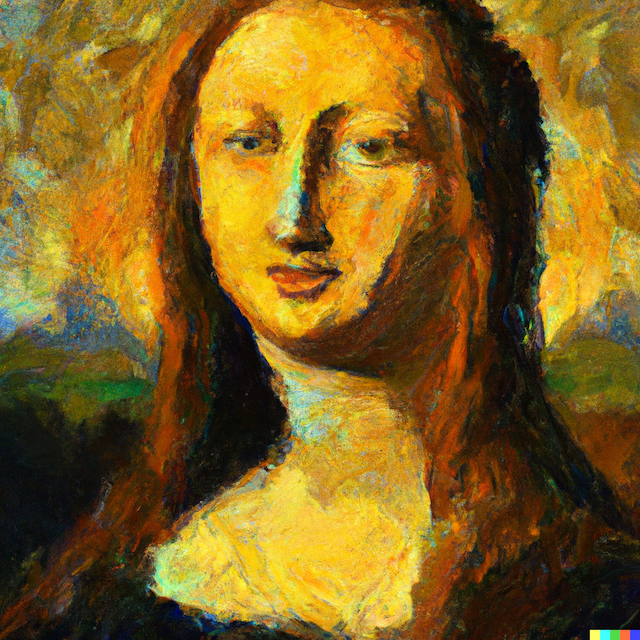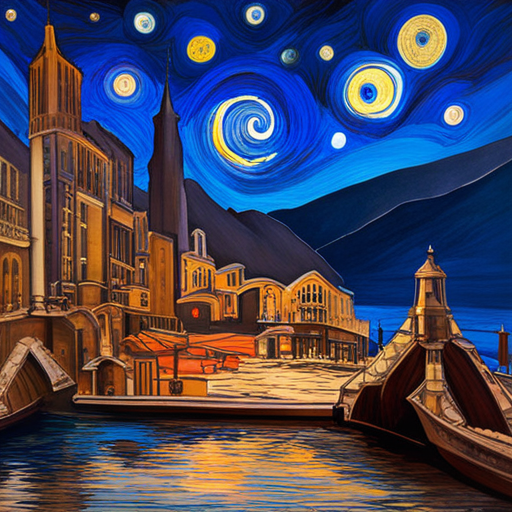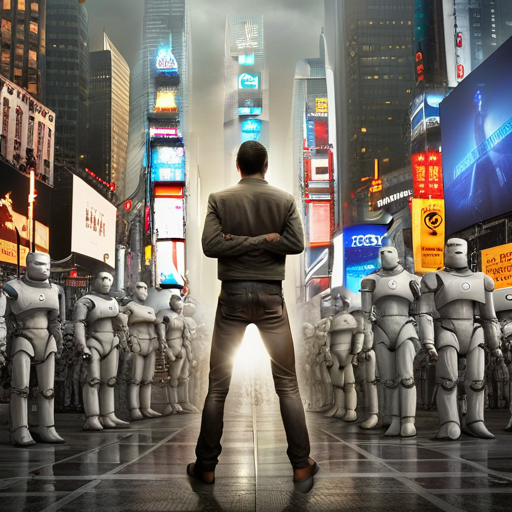Can AR rehman block you from being inspired by his music, can James cameron prevent you from making a movie that uses the narative structure of avatar?
All Art is stolen, all innovation is a copy, we all stand on the shoulders of the giants
But what if we are the last giants standing . What if the next thing to stand on our shoulders were to crush us, would we still let them?
And that my friend is an interesting point of discussion
If you are anyone in anything related to tech, you already know that AI is developing at an unprecedented pace.
Unlike some previous iterations of AI products, it seems this iteration is finally good enough to actually replace a lot of work and fool humans at scale. Some assume it will replace mostly grunt work, but some think even creative work is going to feel the burn
A lot of creativity is also Subjective and depends a lot on the person who consumes the art. To a non trained eye, a painting by da vinci and a art student today is not too different and I bet if you dont tell which is which, not many can tell the difference. So “creativity” itself does not need to be at the extreme end of the spectrum, but just average or above average…just like humans
And that brings me to the central point, AI has reached a point where it can creatively create content like blogs, movie scripts, images, etc . Since it is mostly trained on existing data, let’s assume it does not have a unique style, but rather copies the style it reads (Again not too different from humans)
And it is very capable of replicating a style, you can see it in practice by simply forcing a style.
Eg: Here is Dall E and Stable diffusion imagining Mona lisa in style of Van gough and Starry night in style of da vinci


So if you are someone who is developing a unique style , would you want the AI to be able to copy it?
A human, sure , because a human will take years to potentially master your style, but AI? It will probably take days ,or till the next model update.
Also , do you even have a unique style? What is a unique style anyways
I do not have an answer, because I can see the argument both ways but I do think these are becoming important questions. So here are a few predictions regarding humans creating content that I can make
1: Right to Not train Laws: There might soon be laws coming in that will allow you to opt your content from training set. Stable diffusion etc already started some, but much more will come. Large tech will follow it (Something like Do not index tags), but many may not .
2: More knowledge behind paywalls, more live classes, more cohort courses with NO recording allowed: The best teachers will not want to leave a trail online . More password protection
3: Stringent “Ai created” tagging
More aggressive “AI created” “Human Created” “AI Assisted” tagging, might even be mandated by the government
I don’t think the third one will work though. No one cares today if you did that calculation on paper or used a calculator. The content trumps the creator eventually .
I could be wrong though, people still crave for “natural diamonds” even though lab created ones are purer, similarly “handicrafts” is a big market. These things are marketing based and mostly target a very specific set of people, so who knows we might see an emergence of “Written by human”
Nevertheless, this article was written 100% by human
I did eventually ask ChatGPT to rewrite this article : Here is the result . You can ofcourse make it sound cooler
Prompt: Write the article in the style of Paul graham
Can AR Rahman or James Cameron prevent you from being inspired by their work? Can they stop you from using their narrative structures or artistic styles in your own creations?
All art is a copy, and all innovation is built upon the work of those who came before us. We stand on the shoulders of giants. But what if we are the last giants standing? What if the next generation of creators, fueled by the power of AI, were to crush us? Would we still be willing to let them stand on our shoulders?
These are the questions that we must consider as AI continues to develop at an unprecedented pace. This iteration of AI is finally good enough to replace a lot of work and even fool humans at scale. Some believe it will only replace grunt work, but others think even creative work is at risk.
While a lot of creativity is subjective and dependent on personal taste, it’s important to note that AI is now capable of creating content like blogs, movie scripts, and images with relative ease. And since AI is primarily trained on existing data, it tends to replicate rather than create unique styles.
For creators who have spent years developing a unique style, the thought of AI being able to replicate it in just a few days is daunting. And even if you don’t believe you have a unique style, the question remains: do you want AI to be able to replicate your work?
This raises important ethical questions that we must address. In the near future, we may see laws that allow creators to opt out of being part of AI training sets. We may also see an increase in live classes, cohort courses with no recordings allowed, and more password protection for creative work.
To distinguish between AI-generated and human-created content, there may be a need for more stringent “AI created” tagging. But whether or not this will be effective is up for debate. After all, people still value natural diamonds over lab-created ones, and handmade crafts over mass-produced goods.
Ultimately, the content itself will always be more important than the creator. But as AI becomes more advanced, we must consider how we want to protect our creative work and the legacy of those who came before us.
As for this article, it was written 100% by a human. But who knows what the future holds?

Leave a Reply